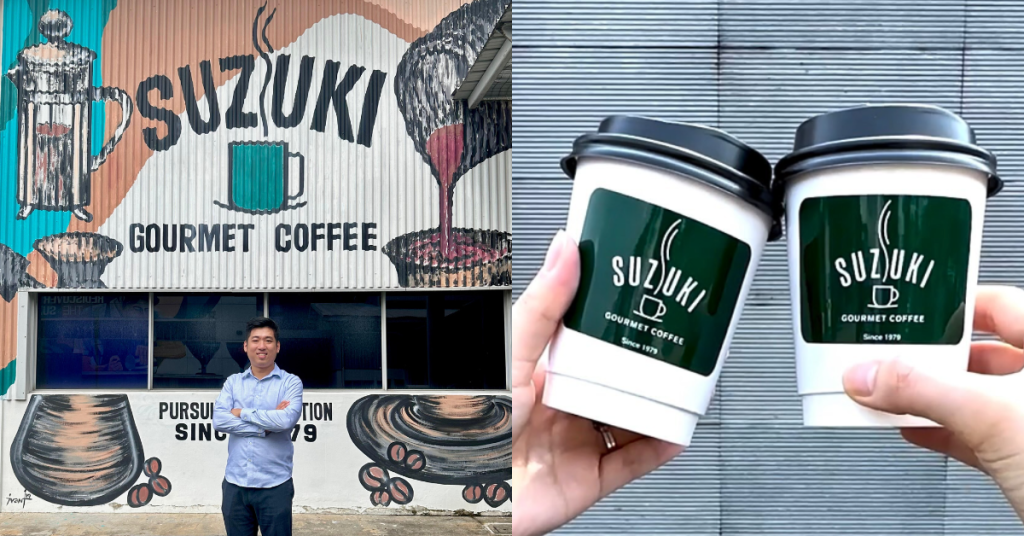When we first discussed the topic of this article, one of our biggest questions was: How did this 80-year-old Japanese brand’s only remaining store end up being at Chin Bee Avenue in Singapore?
The year was 1944 when Grand Master Kiyoshi Suzuki opened Suzuki Coffee, a small kissaten (coffee shop in Japanese) in Tokyo.
By then, coffee was immensely popular in Japan. The nation even pioneered a new roasting method called Sumiyaki, which translates to “charcoal roasted.” The name is pretty self-explanatory, but what makes it different from other roasting methods is the rich flavour it brings out.
This is because the roasting technique cooks the coffee beans thoroughly, removing excess moisture and decreasing its acidity.
Over time, commercial roasting machines became the norm, and the Sumiyaki roasting method declined in popularity and turned into a specialty beverage. However, Grand Master Kiyoshi Suzuki didn’t care.
A passionate coffee connoisseur, he was committed to the Sumiyaki craftsmanship and turned it into the foundation of Suzuki Coffee. Some decades later, this craftsmanship would make its way to Singapore.
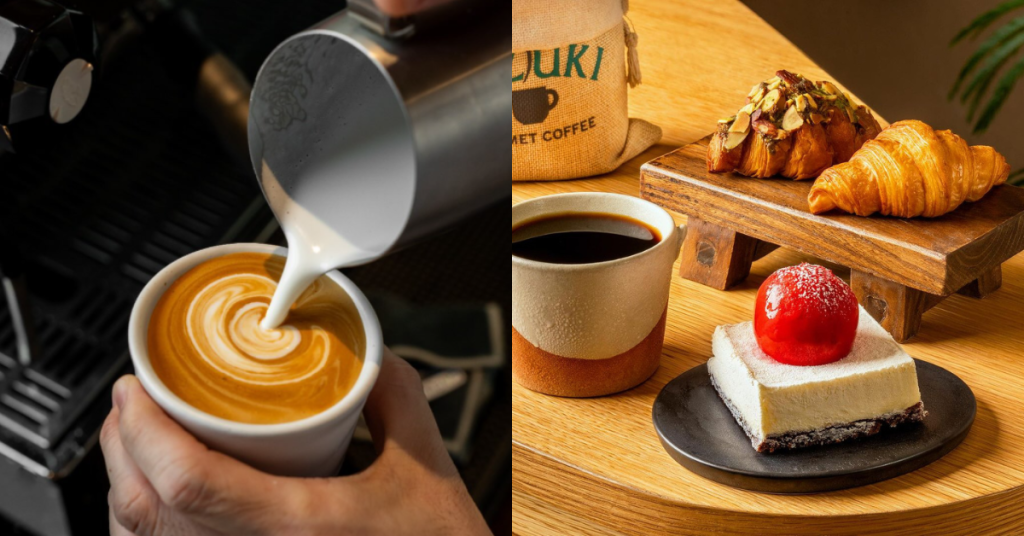
It was meant to “bean”
When the Grand Master’s protege, Hideki Endo-San, visited Singapore in 1979, he knew he found a good spot to grow the business.
The local coffee culture in Singapore was equally as burgeoning as in Japan, but it was dominated by traditional coffee.
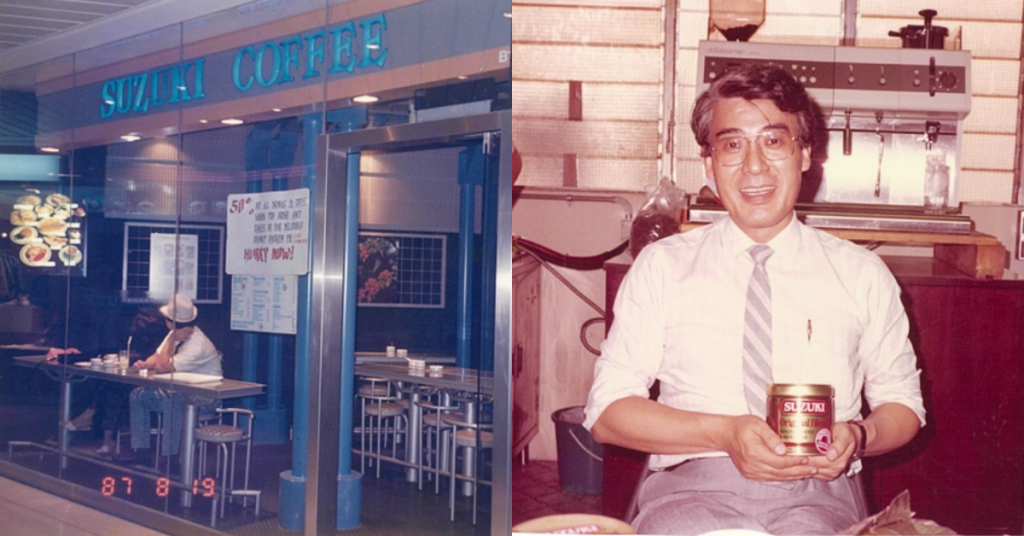
Noticing the little exposure to gourmet coffee roasting techniques here, Endo-San took it upon himself to fill the gap. That’s how Suzuki Coffee opened in Singapore the same year.
It turned out to be a smart business move as demand steadily increased amongst the local community. Within three years, the brand opened a roastery at Ang Mo Kio and a cafe at Bukit Timah Plaza.
Together, these expansions further established the coffee business as a market leader, and they even gained enough recognition to partner with international airlines like British Airways.
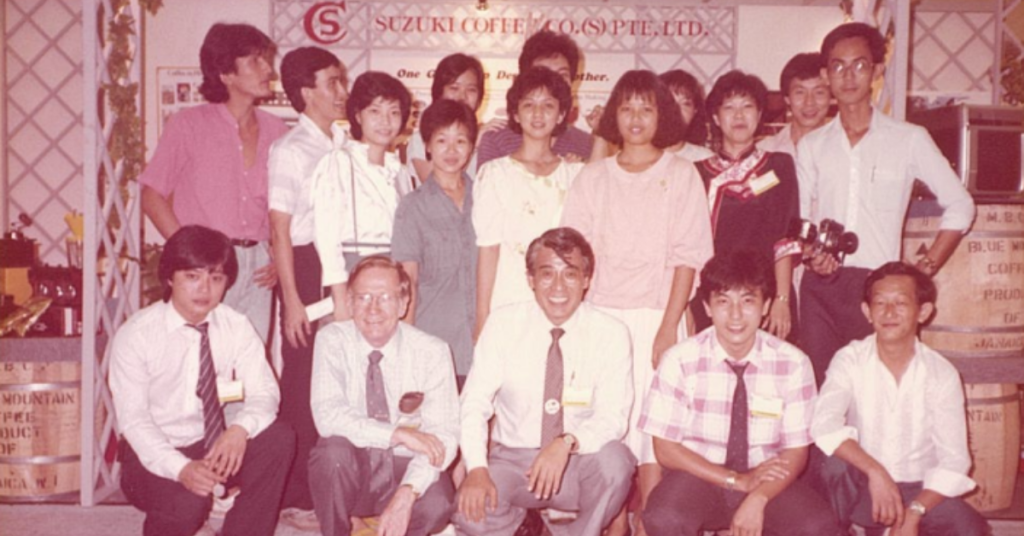
As the Singaporean branch grew and eventually surpassed the Japanese operation, Suzuki Coffee expanded into a local roastery, which according to the brand was Singapore’s pioneer roastery, while the Japanese business remained focused on its cafe.
However, the cafe in Japan closed down between the 1980s to 1990s as nobody took over the family business.
Eventually, the roastery in Singapore was sold to a local businessman. As for the Singaporean cafe, the brand said that it “grew too big”, so they decided to focus on just the roastery.
Wake up and smell the coffee
Fast forward to 2024, and Suzuki Coffee now serves both B2B and B2C markets. You can find a wide range of products tailored to casual drinkers and discerning coffee aficionados.
For example, it carries a curated selection of professional-grade and lifestyle brewing equipment like its V60-inspired drip bags and capsules. These have been growing in demand lately as more people are looking for convenience.
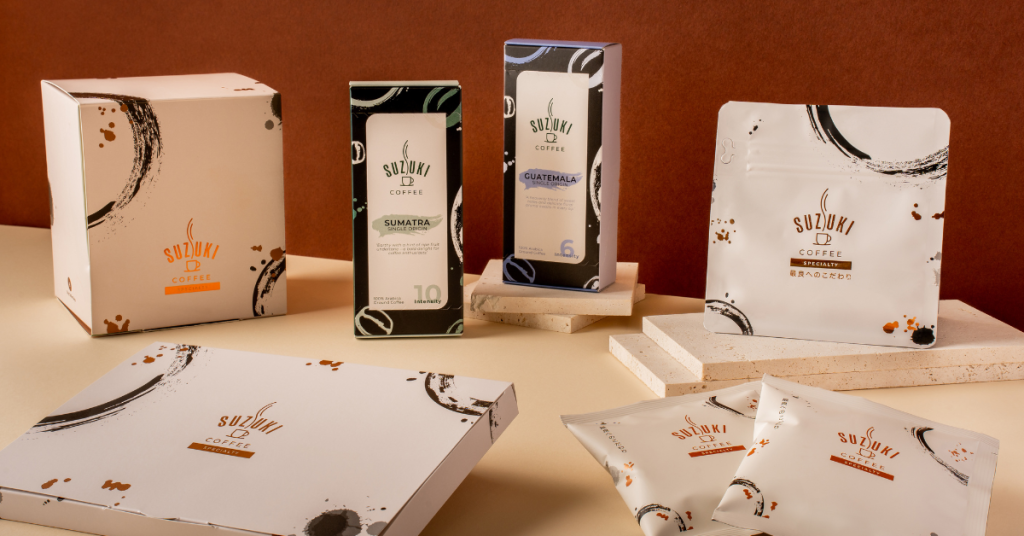
At the heart of its offerings are Suzuki Coffee Beans, which are globally sourced using sustainable practices, the brand said. This includes signature house blends like Chowa and Yugen, which are also customer favourites.
“As proud members of the Singapore Coffee Association and Rainforest Alliance, we are committed to providing beans that meet the highest standards of sustainability and quality,” its COO, Patrick Lim, told us.
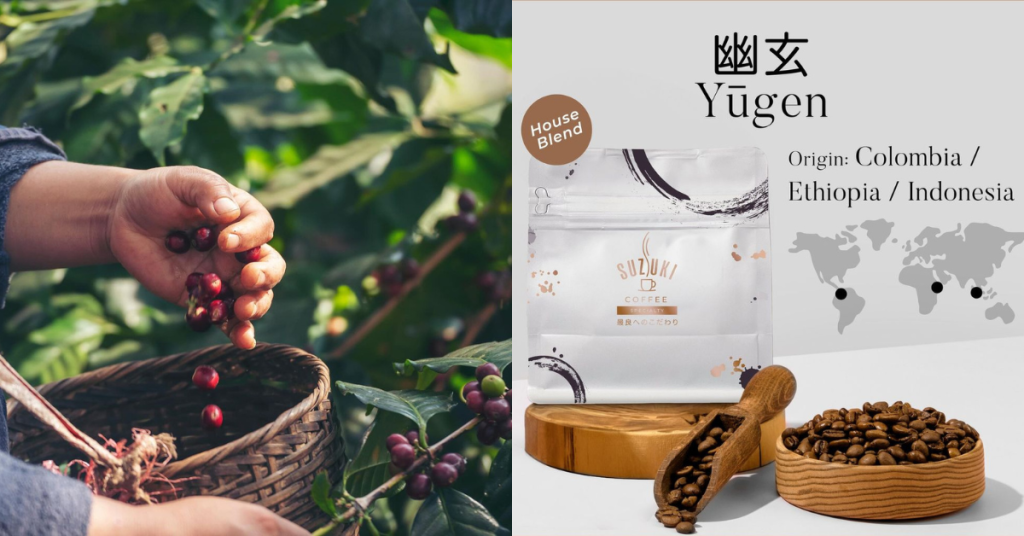
Besides caffeine doses, Suzuki Coffee’s Japandi-styled (a combination of Japanese and Scandinavian interiors) cafe also serves as a multi-functional hub. Here, baristas are trained, beans are roasted, and a variety of events are hosted.
Those looking for a more personal experience could check out the brand’s curated coffee-tasting sessions, guided tours of the roastery, and coffee workshops.
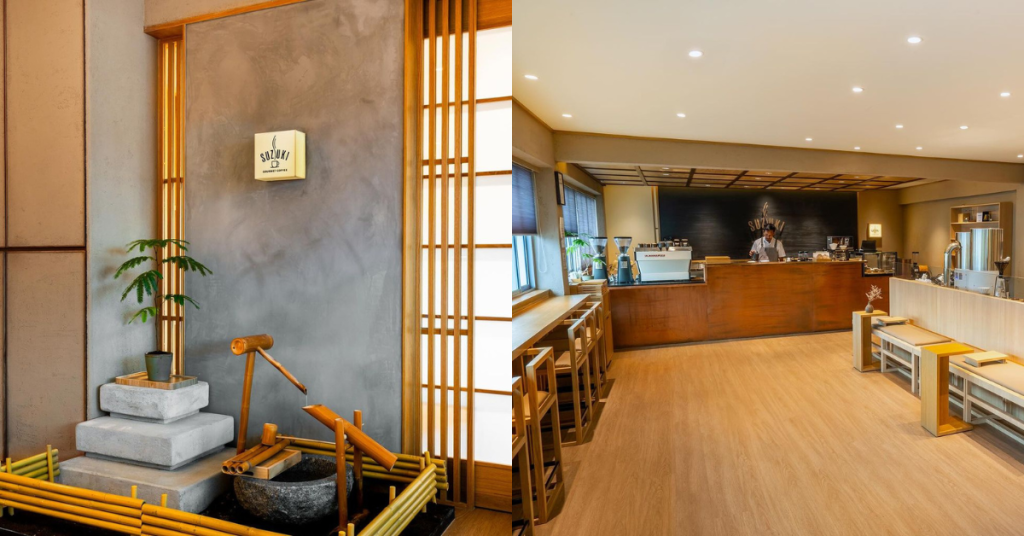
Not your average cup of joe
80 years since its founding, Sumiyaki roasting remains a vital part of Suzuki Coffee’s coffee-making process.
As the traditional charcoal roasting method requires exceptional skill and precision, it’s a craft passed down through generations. Currently, Loo is the brand’s master roaster and learnt the art directly from Hideki Endo-San.
“Each batch of Sumiyaki roasted coffee carries forward this rich legacy, ensuring the highest standards of quality. This technique is one of Suzuki Coffee’s distinctive strengths, imparting a unique flavour profile that modern methods can’t replicate,” Patrick stated.
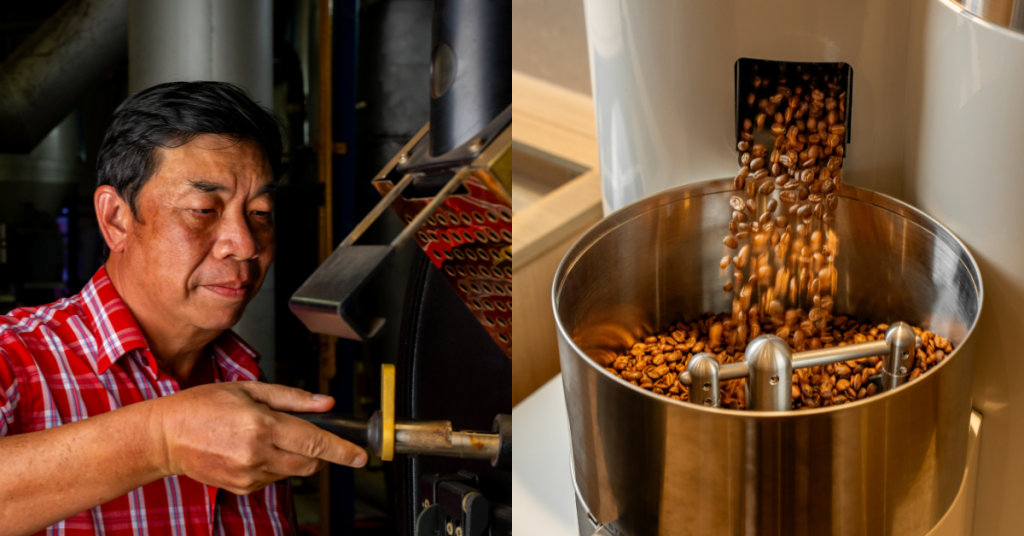
“Our customers truly value the heritage and authenticity it brings to every cup.”
Yet, it’s also the principles behind Sumiyaki roasting that really define the brand. Patrick explained that their continued insistence on precision and craftsmanship has guided them since the start and continued to set them apart.
“By holding true to our principles while embracing modern expectations, we’ve created a brand that resonates across generations. This balance is essential for thriving in today’s competitive market.”
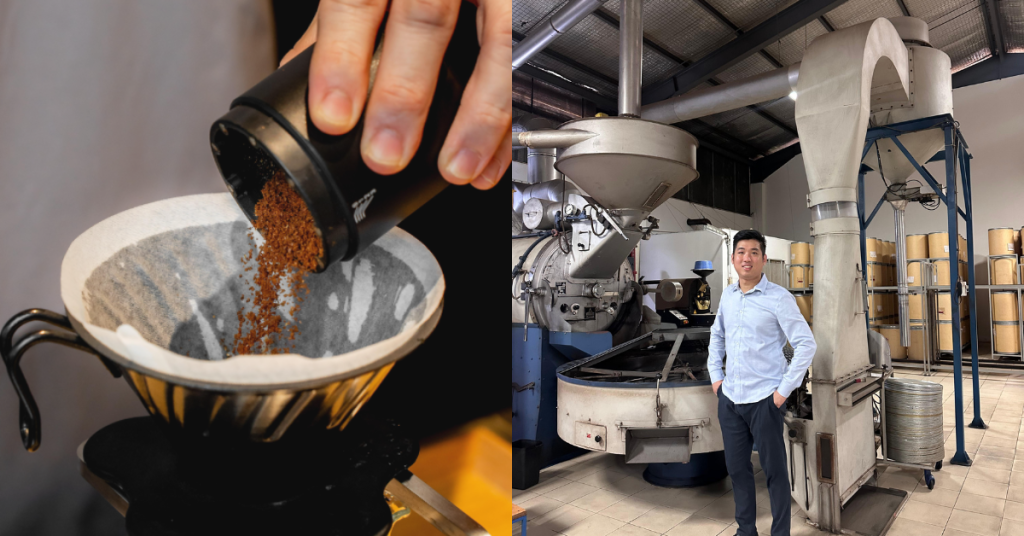
They’re going full steam ahead
Nowadays, the brand has noticed that consumers are better informed and want to know the story behind their coffee. Where is it sourced from? How is it roasted? These are just some of the questions they have in mind when looking for their next caffeinated beverage.
So Suzuki Coffee has begun focusing on ethically sourced beans and sustainable packaging options. They’ve also installed over 466 solar panels across their premises, making Suzuki the only solar-powered coffee roaster in the region, they shared.
Through the Suzuki Cares programme, they focus on key initiatives like coffee grounds recycling and tree-planting efforts.
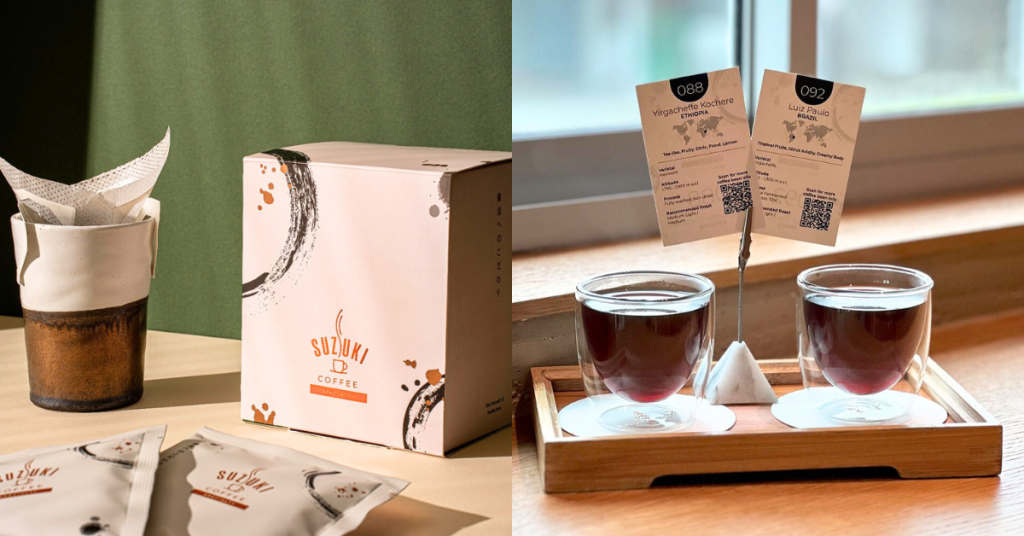
In terms of technology, they anticipate a growing integration of IoT (Internet of Things) in the coffee industry, especially in roasting and packaging processes. This could involve everything from smart roasting systems that ensure precision to eco-friendly, tech-enabled packaging solutions.
“We’re actively investing in these areas to stay ahead of the curve and maintain our competitive edge,” Patrick declared.
In the coming years, the brand’s ambition is to lead the coffee industry into a new era with a focus on technological integration and sustainability. Gradually, they’ll also be expanding the brand’s footprint into other countries.
According to French Press Coffee, the Sumiyaki roasting technique remains a specialty in Japan, though it’s catching on in North America. There are already a few American brands offering it, so competition there might get tighter with time.
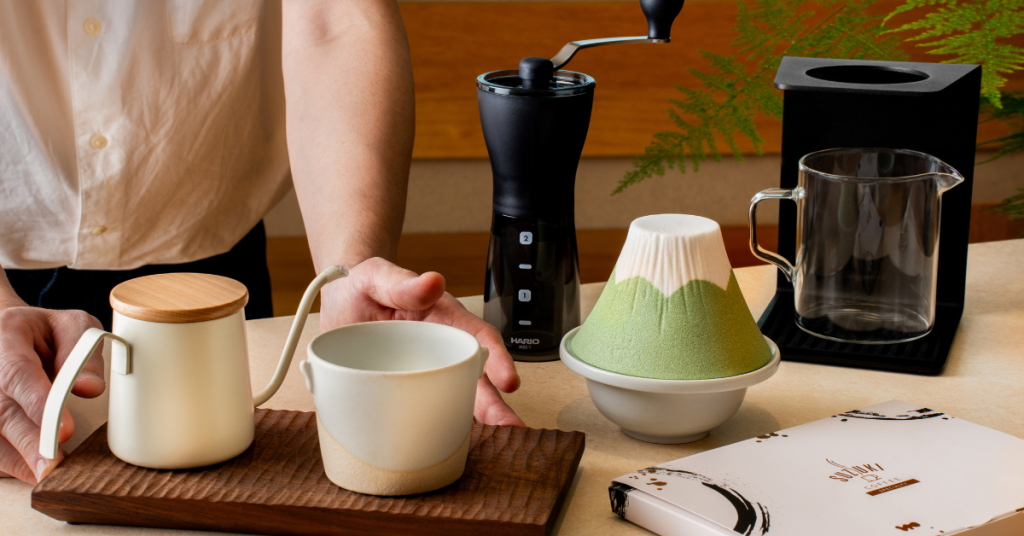
“With sustainability at the forefront of our strategy, we aim to be a leader in both innovation and environmental responsibility, setting new benchmarks for what a coffee brand can achieve in terms of both quality and impact,” he concluded.
With the Japanese brand’s legacy now living on at this 55,000 sq ft facility at Chin Bee Avenue in Singapore, we’re excited to see how they’ll continue to balance tradition with innovation.
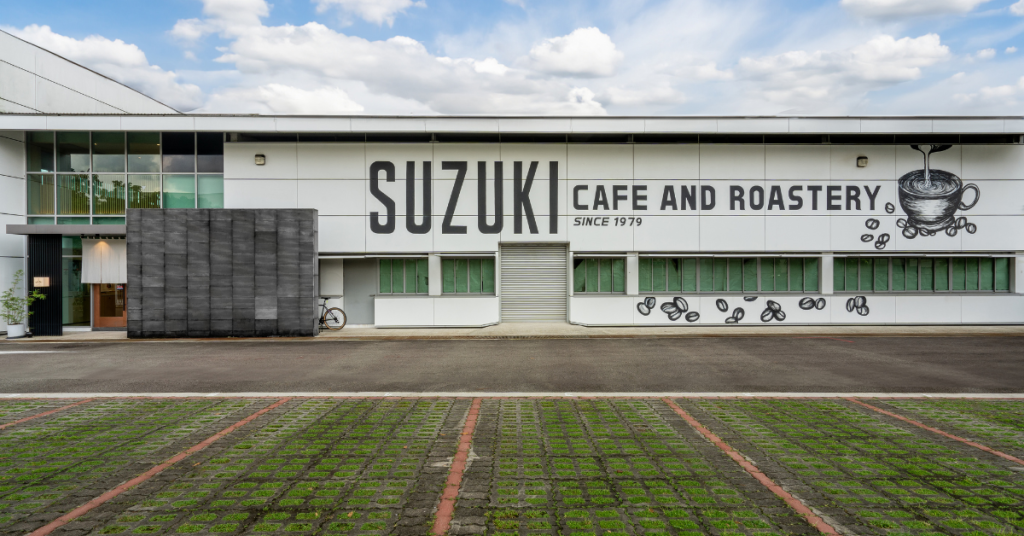
- Learn more about Suzuki Coffee here.
- Read other articles we’ve written about Singaporean startups here.
Featured Image Credit: Suzuki Coffee


